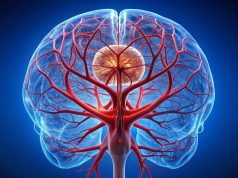The 71st Annual Meeting of the American Academy of Neurology
The annual meeting of the American Academy of Neurology was held from May 4 to 10 in Philadelphia and attracted approximately 12,000 participants from around the world, including clinicians, academicians, allied health professionals, and others interested in neurology. The conference highlighted recent advances in neurological disorders, with presentations focusing on the diagnosis, management, and treatment of disorders impacting the brain and nervous system.
In a dose-finding study, Timothy M. Miller, M.D., Ph.D., of the Washington University School of Medicine in St. Louis, and colleagues found that for patients with amyotrophic lateral sclerosis (ALS), treatment with tofersen 100 mg during approximately a three-month period resulted in a statistically significant lowering of superoxide dismutase 1 (SOD1) protein levels in the cerebrospinal fluid compared with placebo. The researchers also noted a numerical trend toward slowing of clinical decline as measured by the ALS Functional Rating Scale-Revised (ALS-FRS-R), as well as better scores on tests measuring breathing capacity and muscle strength.
On a 48-point scale, the investigators found that the mean change in ALS-FRS-R score from baseline to day 85 was −1.1 in the tofersen 100 mg group and −5.3 in the placebo group. The observed differences between tofersen and placebo were more apparent in patients with rapidly progressing disease.
“The interim analysis gives us new understanding for ALS, which is a historically difficult-to-treat disease. We’re encouraged by the positive results and are excited to further investigate the therapeutic potential of this treatment in the phase 3 study,” Miller said. “In March 2019, the first patient was dosed in the phase 3 VALOR study of tofersen in adults with ALS with a confirmed SOD1 mutation; the study aims to assess the efficacy and safety of tofersen versus placebo.”
The study was supported by Biogen. Biogen licensed the global rights to develop, manufacture, and commercialize tofersen (BIIB067) from Ionis Pharmaceuticals.
In another study, Carmela Tartaglia, M.D., of the University of Toronto and Toronto Western Hospital, and colleagues found that multiple concussions put some people at risk for neurodegeneration as measured with cerebrospinal fluid total tau.
“About half the group of former professional athletes who had suffered multiple concussions showed elevated total tau in their cerebrospinal fluid, while the other half of the players had levels similar to controls,” Tartaglia said.
Specifically, the group of former players with elevated total tau had lower white matter integrity in their brain and performed worse on an executive task compared with the group of former players with normal tau. The researchers noted no difference in the number of concussions between the two groups.
“We need to find a marker of who has evidence of neurodegeneration, possibly chronic traumatic encephalopathy (CTE), in the brain so we can accurately diagnose this disease while people are alive. Not all people who have had multiple concussions will get CTE, but we need to identify who has it. That’s the first step toward treating this disease,” Tartaglia said. “We need more education so as to prevent concussions, including changing some sports, and more research to find vulnerability factors — why do some people get neurodegeneration and others don’t?”
Tanya Simuni, M.D., of the Northwestern University Feinberg School of Medicine in Chicago, and colleagues compared the effect of isradipine versus placebo on the progression of Parkinson disease (PD).
“Isradipine is currently approved for the treatment of high blood pressure. The reason we are evaluating this drug to slow the progression of PD is because in a number of preclinical animal models, isradipine demonstrated a neuroprotective effect,” Simuni said. “In addition to animal models, epidemiology studies have demonstrated on average a 30 percent reduction in new diagnoses of PD among individuals using this class of blood pressure medication compared to other medications.”
This phase 3 study compared the effect of 10 mg daily of isradipine versus placebo on the progression of PD disability over three years as measured by the Unified Parkinson Disease Rating Scale. Unfortunately, the investigators found that the drug did not show statistically significant benefit in delaying the progression of disability in PD.
“While this is an unfortunate result, this study provides an answer to a question that has been ongoing. The bigger question is why did the drug fail, despite epidemiologic and preclinical data that demonstrated something different? One of reasons could be that the 10 mg dose was not sufficiently high enough to produce the effect we expected in the brain. The other possibility is that, while this mechanism is neuroprotective in animal models, it may not be the leading cause of development in PD,” Simuni said. “Lastly, even though the population recruited for this study was in the early stages of the disease process, it may have been too late for this intervention and maybe should have been started in the prodromal stage, prior to development of any motor symptomatology.”
AAN: Isradipine Offers No Benefit in Parkinson Disease
FRIDAY, May 10, 2019 (HealthDay News) — Isradipine does not appear to slow progression of disability in patients with de novo Parkinson disease, according to a study presented at the annual meeting of the American Academy of Neurology, held from May 4 to 10 in Philadelphia.
AAN: Oral BTK Inhibitor Superior to Placebo in Multiple Sclerosis
TUESDAY, May 14, 2019 (HealthDay News) — The selective Bruton’s tyrosine kinase inhibitor evobrutinib at a dose of 75 mg once daily is associated with fewer enhancing lesions during weeks 12 through 24 among patients with relapsing multiple sclerosis, according to a study published May 10 in the New England Journal of Medicine to coincide with the annual meeting of the American Academy of Neurology, held from May 4 to 10 in Philadelphia.
AAN: Eculizumab Reduces Risk for Relapse in Neuromyelitis Optica
FRIDAY, May 10, 2019 (HealthDay News) — For patients with aquaporin-4-immunoglobulin G-positive neuromyelitis optica spectrum disorder, eculizumab is associated with a lower risk for relapse, according to a study published online May 3 in the New England Journal of Medicine to coincide with the annual meeting of the American Academy of Neurology, held from May 4 to 10 in Philadelphia.
AAN: Cannabidiol Tied to Drop in Seizures in Dravet Syndrome
WEDNESDAY, May 1, 2019 (HealthDay News) — For patients with Dravet syndrome and drug-resistant seizures, cannabidiol is associated with a reduction in seizures, according to a study scheduled to be presented at the annual meeting of the American Academy of Neurology, held from May 4 to 10 in Philadelphia.
AAN: No Increased MS Relapse Risk in Postpartum Period
FRIDAY, March 8, 2019 (HealthDay News) — Women with multiple sclerosis seem not to suffer from pregnancy-related relapses in the early postpartum period, according to a study scheduled for presentation at the upcoming annual meeting of the American Academy of Neurology, to be held from May 4 to 10 in Philadelphia.
AAN: Sweetened Drinks Linked to More Severe Disability in MS
WEDNESDAY, March 6, 2019 (HealthDay News) — Sugar-sweetened beverage consumption is associated with an increased risk for severe versus mild-to-moderate disability among individuals with multiple sclerosis, according to a study scheduled for presentation at the upcoming annual meeting of the American Academy of Neurology, to be held from May 4 to 10 in Philadelphia.
AAN: Sleep Apnea Tied to Higher Cortical Tau Levels in Seniors
MONDAY, March 4, 2019 (HealthDay News) — Older adults who are witnessed to have sleep apnea have increased accumulations of tau in the entorhinal cortex, according to a study scheduled for presentation at the upcoming annual meeting of the American Academy of Neurology, to be held from May 4 to 10 in Philadelphia.
AAN: Professional Soccer Players Show Increased Risk for ALS
THURSDAY, Feb. 28, 2019 (HealthDay News) — Professional soccer players may have an increased risk for amyotrophic lateral sclerosis, according to a study scheduled for presentation at the upcoming annual meeting of the American Academy of Neurology, to be held from May 4 to 10 in Philadelphia.
Copyright © 2019 HealthDay. All rights reserved.







